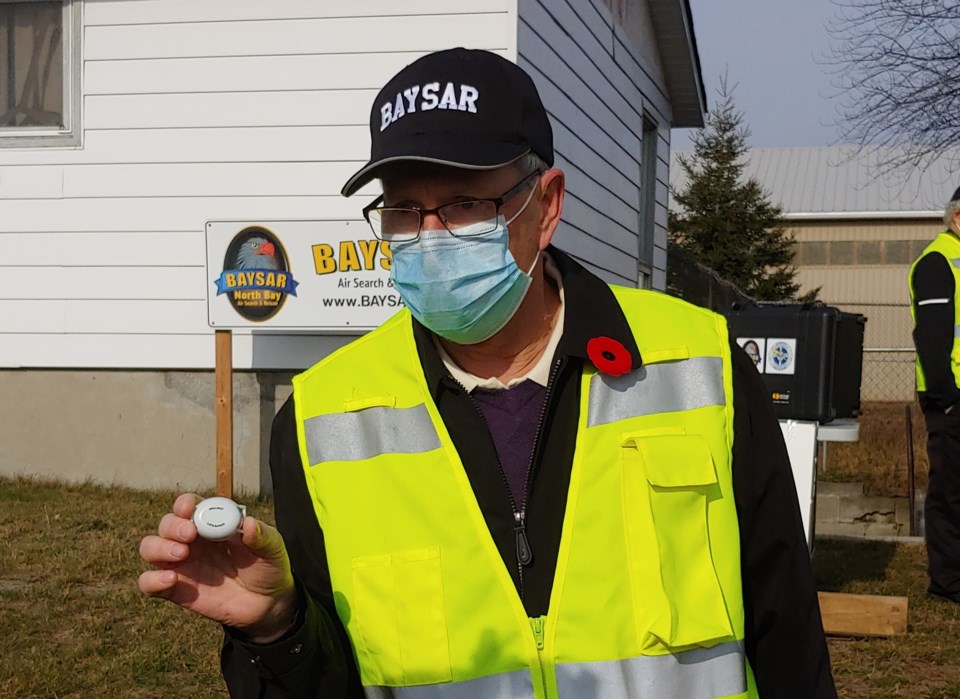Project Lifesaver is now offered in West Nipissing, which helps locate missing people, particularly those who have cognitive disorders such as Alzheimer’s disease or dementia.
The program also helps those with Autism Spectrum disorder, Down syndrome, and acquired brain injuries.
The Nipissing West and North Bay OPP detachments, in conjunction with BAYSAR Air Search and Rescue of North Bay, announced the program’s expansion on Friday, July 9.
“Families of vulnerable individuals can now consider Project Lifesaver to help bring their loved ones home should they go missing,” explained constable Robert Lewis in a release.
See: Project lifesaver saves a local life
“We already have a few clients in West Nipissing,” said Stan French, the president of BAYSAR.
“The first phase was to launch with the North Bay Police Service, and we did our official launch Nov. 6, last year.”
This roll out into West Nipissing marks the final stage of expanding the program into OPP jurisdiction throughout the region. “The officers are trained, and they have the equipment,” French said, “so we’re fully operational now.”
Program participants wear personalized wristbands that emit a signal that patrolling officers can detect once a person is reported missing.
See: This Project Lifesaver technology helps protect vulnerable loved ones who wander
Project Lifesaver is a not-for-profit initiative that has rescued more than 3,800 people since 1999. Founded by Gene Saunders, the Chief of Search and Rescue for the Chesapeake Sheriff’s office in Virginia, Project Lifesaver helps people of all ages throughout the United States and Canada.
The wristband weighs an ounce, is battery operated and the transmitter within emits an FM frequency signal every second of the day.
Although the technology is not new, it remains highly effective. FM signals travel through concrete, steel, and heavily wooded areas, all of which can pose serious obstacles for GPS tracking devices.
The signal range is approximately 2.5 kilometers. From a helicopter, that range increases to between eight to ten kilometers.
See: Project Lifesaver to be strengthened and expanded locally
Efforts are made to keep the cost of the program low, French said, adding that through fundraising, and a generous donation from Rebuilt Resources, the price for clients is $200 plus a $20 monthly fee.
Once signed up, BAYSAR provides replacement batteries and new straps for the transmitter every 60 days. Caregivers are equipped with a transmitter tester and are required to test the function of the transmitter daily.
Nipissing West marks the final stage of the region’s Project Lifesaver roll out, and residents in Mattawa, Marten River, Powassan, and North Bay are welcome to register.
For information on enrolling someone from the West Nipissing and North Bay area in the program, contact BAYSAR Search and Rescue at [email protected] or call 705-475-9694.
See: Police looking at new tracking technology for at-risk individuals
See: Police Board gives green light to Project Lifesaver
David Briggs is a Local Journalism Initiative reporter who works out of BayToday, a publication of Village Media. The Local Journalism Initiative is funded by the Government of Canada.
